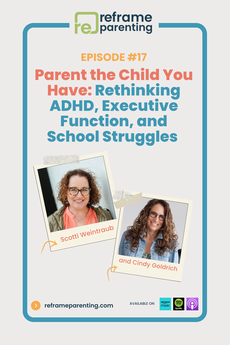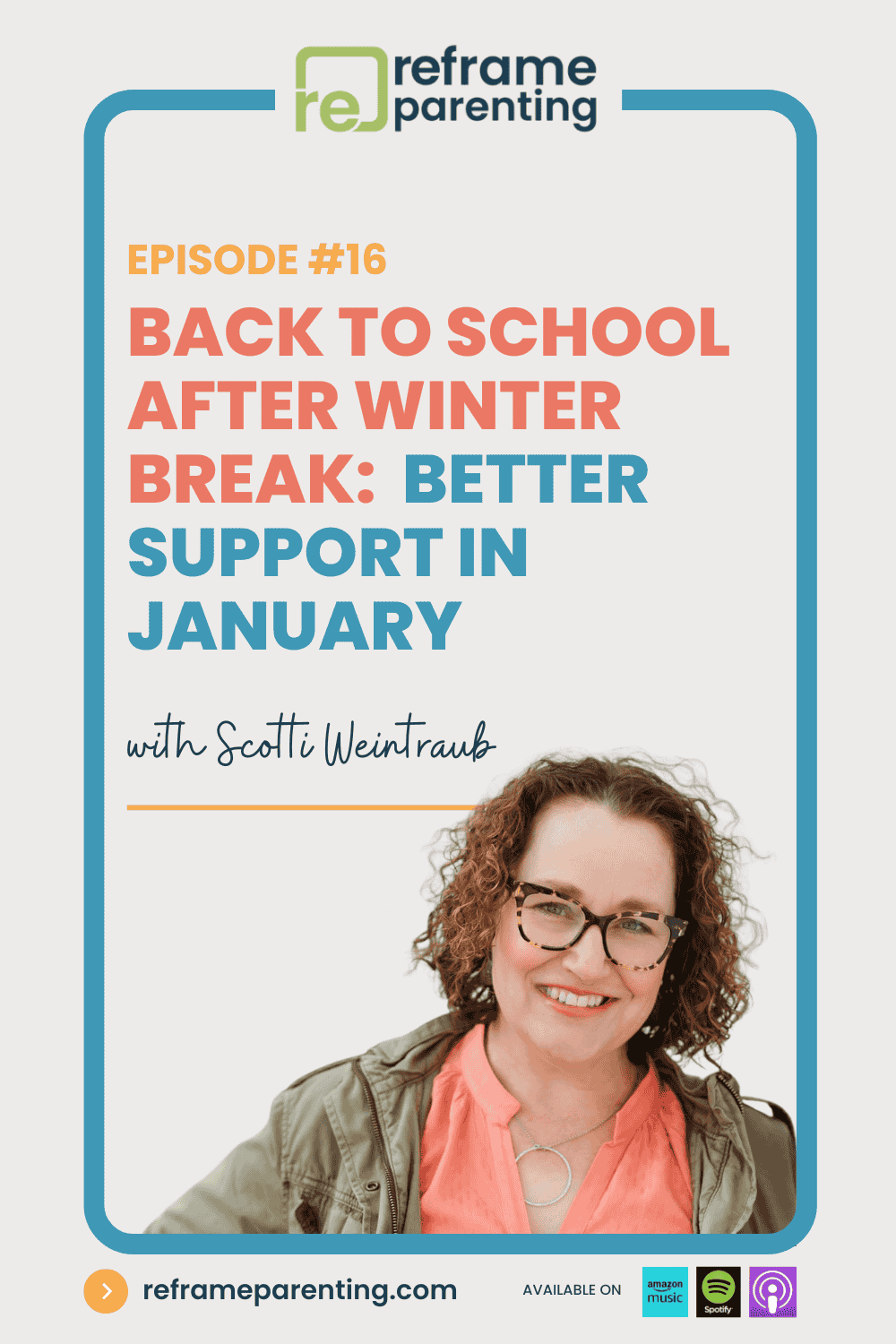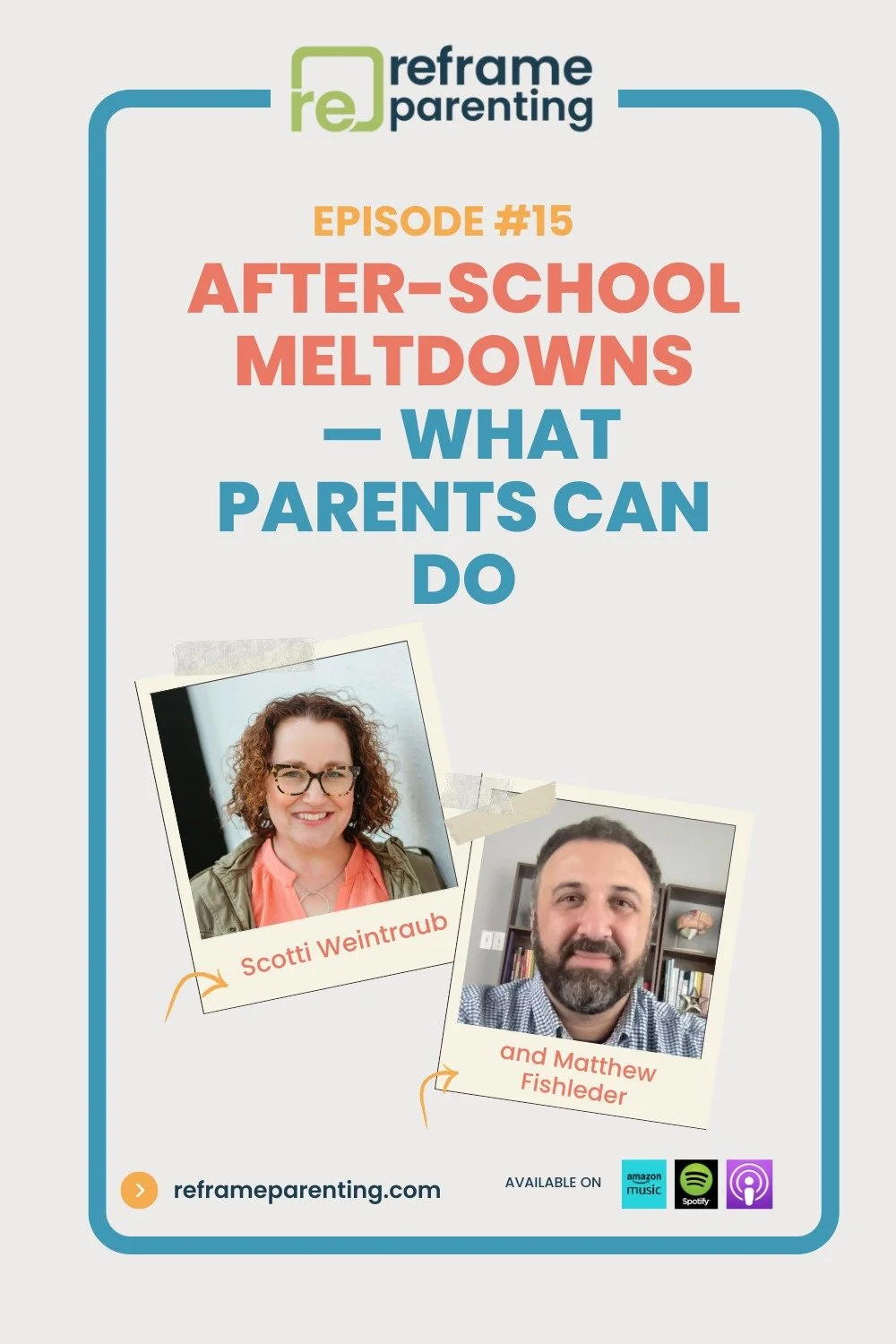Why is it important to collaborate? Q&A with a secondary teacher
Guest Q&A
with Nicole from Behind the Classroom
Reframe Parenting posed a series of questions about how we, as parents, can best partner with our child’s teachers - and why it’s so important. Thanks Nicole for sharing your teacher insight and perspective.
Why is it important for parents to collaborate with their child’s teachers?
As teachers, we view working with parents as a partnership to help the student be successful. When you feel comfortable talking to your child’s teachers and are able to be involved in your student’s schooling, studies consistently show that student success is higher than those whose parents are less involved. A great way to be involved is establishing that partnership with teachers. When you have everyone - parents and teachers - on the same page to help a student succeed, there is no miscommunication between these two groups that want the same thing. Along with minimizing miscommunication, if it’s found that a student needs a 504 or IEP, both parties are able to provide more data to set up a plan and accommodations that help your child learn in the classroom!
What are the top things parents can do to develop a relationship with their child’s teachers?
When it comes to building a relationship with your child’s teachers, one of the top ways to begin is to attend your student’s Open House and, if the school offers them, parent-teacher conferences. These are often at the beginning of the school year and provide a great platform to get to know the teacher. At these events, parents typically stop and talk to me to share information about their student that can help them be more successful in my class. This also allows them to voice any concerns that they have or what are some things I can look for when they’re in class. Plus it gives me the confidence to reach out if I notice anything or have concerns as well!
Another great way to develop a relationship with your child’s teachers is checking the online gradebook and checking in with your student. When students are struggling, I often receive emails asking about missing work or what assignments are. However, I always encourage parents to check in with their student first! When you show that you’ve asked them first, this establishes that you recognize that your student plays a role in their education and you are wanting to verify with me. This provides both of us - teachers and parents - the ability to start a discussion about identifying why they are struggling, establish a plan, and work to help your child succeed.
What mistakes do parents make in partnering with their child’s teachers?
A big mistake that parents make when partnering with teachers is forgetting that we also care about your student. I am not out to fail students - I want to see them learn and succeed. You adore your child and sometimes that can cause a protective nature to come through. When high emotions are involved, it can be hard to have difficult conversations. Many times when I have communication home and it doesn’t go well - typically where a plan isn’t created - there are heavy emotions involved. But that is fair! You want the best for your child. Just remember that we’re reaching out because we want that too.
Please remember that we are professionals. We go to school and are constantly attending training to better ourselves as teachers. When high emotions are involved, sometimes teachers are the first to be blamed - that we aren’t doing our jobs right, that we don’t care about the students, or that we are simply bad at what we do. However, always make sure to check in with your child first. Ask them about their classes, how the workload is, and if they have concerns. By being involved, you can help us help your child. As Scotti with Reframe Parenting says, you’re the expert on your child, I’m the expert in teaching.
Another key thing to remember is that we often have tons of tasks and students with individual needs and wants that we are attending to in our classrooms. As a high school teacher, I see over 150 students a day. Along with that, I also have to grade, plan, report data, counsel, provide social-emotional learning, and manage a class of teenagers. I’m handling my own life as a parent and wife as well. If your child seems to fall through the cracks (because it unfortunately happens sometimes), don’t assume it’s because we don’t care. Sometimes our plates are overflowing. But by communicating your concerns with us from the beginning of the year, we as teachers are able to make sure we can prioritize observing your child and notifying you if we see anything concerning sooner rather than later.
At the end of the school year, what should parents do now to help their child for next year?
A great way to start preparing for next year is to reflect on how this current year has gone.
Was there a specific subject that your child struggled with? Make note of that so that if they have to take a similar class in the following years, you can make sure to reach out to that teacher to give them a heads up.
What did you find worked or didn’t work for your child? Were there specific types of assignments that they struggled with? Maybe writing is a place of growth for them - make sure to note that and possibly seek summer resources to help them strengthen those skills.
When should a parent go to the teacher with concerns?
As a teacher, I always appreciate when a parent or guardian reaches out before concerns arise. Providing information about their student or some areas that they have struggled with in the past allows me to be prepared to scaffold more within the classroom. When creating lessons, I am always trying to reformat and address concerns or patterns that I see within the classroom for the class, but also my individual students as well! The more data and information I have about a student, the better I can teach them and ensure they are successful with the content.
However, sometimes a student can start to struggle when it’s unexpected - life happens. As soon as you see a change within your student’s behavior and/or grades at school, make sure to have a conversation with your student to check in with them first. Some questions you can ask:
I’ve noticed (whatever you noticed). Do you want to talk about what’s going on?
How are you feeling lately?
Do you have some extra stress at school?
How’s it going with your friends?
What are some big events happening at school?
Just checking in with your student first can provide you with information that you can then bring to the teacher too!
If you’re able to get your child to talk to you about what is going on, don’t hesitate to reach out to their teachers to explain what is happening. I often receive emails about things that happen at home - loss of a family member, moving, and other stressors - that help me help that student in class. Maybe it explains why they’ve seemed so tired lately in class, or why they are always working on their math homework in English.
If you aren’t able to seem to pinpoint what is going on with your child, still reach out to the teacher to explain that you have noticed these things and that you’d like to see what is happening in class. I’m more than happy to share what I observe in the classroom. Then, based on what we both see, we can come up with a plan to help the student navigate getting their grade back up or filling in the gaps that they are experiencing.
Again, teachers and parents are partners in that child’s education and well-being.
How can parents best communicate with their child’s teachers?
Each teacher will have a personal preference, but I believe that the easiest for most teachers is to email. This way, we can make sure to touch on all the points you want to discuss and take the time to provide a thorough answer. Plus, if you both create a plan of how to communicate, what are things that have been tried in the classroom and home, and ever need to reference back to remind yourselves, there is the email conversation there.
About Nicole
Nicole is a high school English and social studies teacher in Washington state. Her blog, Behind the Classroom helps teacher parents balance life and work with tips about parenting and teaching.
Does it make your heart race when you get an email or phone call from your child’s teacher? Check out this blog post for tips on staying calm!








